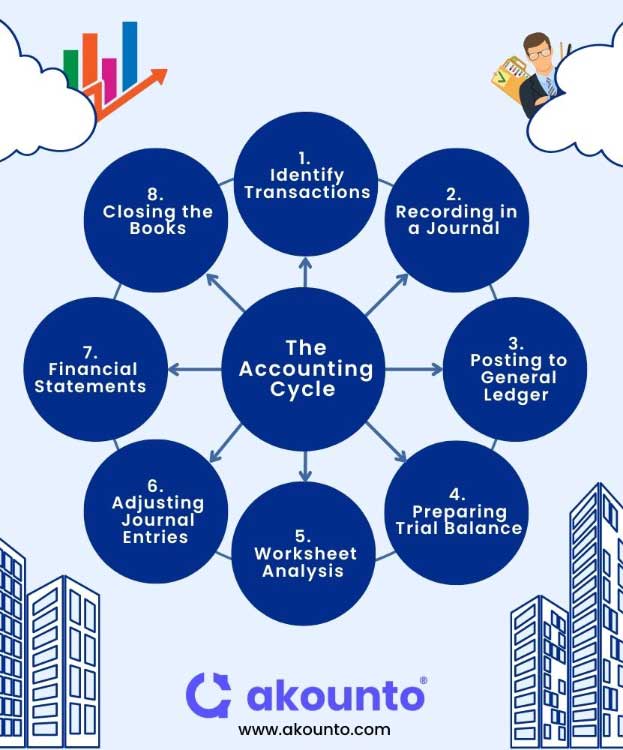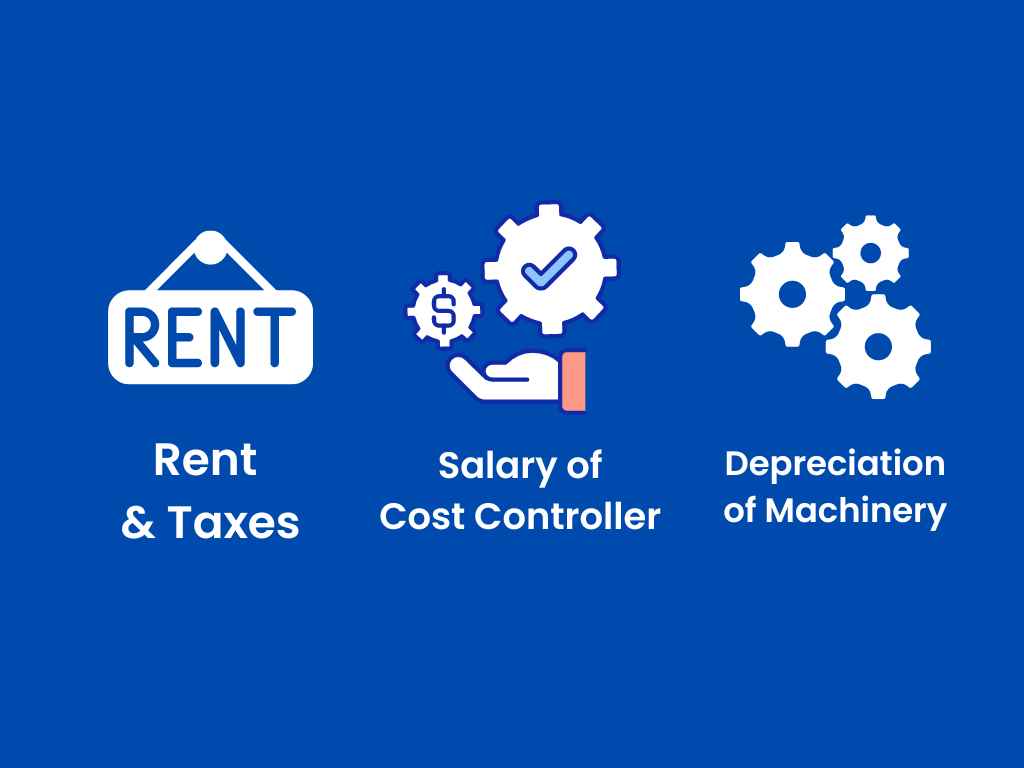What is Accounting? An Introduction
Accounting is the process of recording, classifying, and summarizing business transactions and preparing reports to enable various stakeholders to interpret the financial activities of a company for a specified period.
Accounting helps businesses track how their money comes in and goes out, where it is invested, how it is used, the efficiency of money’s usage, calculating profits, distributing profits, filing taxes, etc.
What’s covered in the article
Bookkeeping and accounting are related disciplines but are not the same. Accounting is a much broader subject. Bookkeeping involves recording day-to-day transactions, maintaining documentation, ensuring accuracy, reconciling accounts, etc.
Accounting builds upon the process of bookkeeping and helps prepare annual financial statements like the Trading Account, Balance Sheet (also known as the Position Statement), Profit and Loss Account (also known as the Income Statement), Cash Flow Statement, Statement of Changes in Equity, etc. As a part of legal compliance, these final accounts are audited and submitted to shareholders, tax authorities, investment banks, and underwriters, used for filing for IPOs, reporting revenue, establishing internal controls, etc.
In addition to the above, accounting helps in preparing various reports like cost sheets, budgets, inventory sheets, and various management reports that aid in decision-making.
For a small business owner, hiring a professional bookkeeper is very important, as recording and classifying transactions is based on strict guidelines and regulations laid down by regulatory bodies in the form of GAAP (Generally Accepted Accounting Principles), IFRS (International Financial Reporting Standards), and various other guidelines by mandated by law.
Apart from hiring a bookkeeper, a small business owner himself/ herself must get hold of accounting as a discipline so that he/she can understand, interpret, and make use of various financial reports for decision-making. Learn to know bookkeeping basics that a small business owner must know for a clear grasp of the subject.
History of Accounting
Accounting history goes back to 600 to 650 B.C., when the use of the concept of money started. It was when the kingdom of Lydia, present-day Turkey, issued the first regulated coins. When there were coins and money, people counted them, and that’s how accounting was born.
Mesopotamia (the present-day areas of Syria, Iran, Iraq, and Turkey) and the Egyptian and Babylonian civilizations first developed the earliest forms of bookkeeping and auditing. Eventually, during the first and second centuries, the Roman Empire had detailed accounts of financial information.
Double-entry bookkeeping began in the Middle East during the 6th and 7th centuries. But the first published work on double-entry accounting goes back to 1494 by Luca Pacioli, also known as the Father of Accounting.
The profession of accounting as an individual was organized only in 1880 when the first coalition emerged in the form of the Institute of Chartered Accountants in England and Wales (ICAEW). With the onset of the industrial revolution, accounting emerged as a major discipline.
Importance of Accounting in a Business
Public companies listed on the U.S. Securities and Exchange Commission (SEC) observe strict accounting and auditing standards. Otherwise, the commission gets them delisted. The strict accounting rules and regulations came about after a series of scandals in the early 2000s that resulted from inefficient financial accounting.
Enron, one of the biggest downfalls to ever occur, happened because of accounting loopholes, such as discrepancies in their financial statements. An Insights West Survey found out that the common reasons why businesses fail and struggle to operate are concerned directly or indirectly with accounting, such as:
- New and small business owners are unable to handle their financial statements
- Cash flow mismanagement
- Inability to price the product wisely
- Lack of a well-developed financial business plan
- Inability to track performance from one operation to the next one until they finally go bankrupt
Accounting knowledge and understanding are essential to kickstart a sufficiently operable business. Otherwise, it should use professional accounting services for making business decisions.

Below is a breakdown of why accounting is vital for a business:
1. Accountability
Accounting and financial audits are essential for the staff’s accountability and keeping a record of the investors’ funds. Accounting keeps a record, and well-prepared financial statements are used by the respective governing body or stakeholders to see where the business spent the money.
2. Transparency
The audit reports and a company’s financial position play the most significant role in investors’ decisions. Both income and asset-wise, the financial situation should be transparent and genuine in its dealings. Any misstatement impacting the user’s decision is considered a financial crime.
3. Taxation
Accountants handle complex taxation rules and ensure compliance with legal requirements for companies and businesses.
4. Budgeting and Financial Planning
Cash flow management, budgeting, and making future business decisions based on accurate figures are some essential factors when running a successful business. Financial accounting picks out valuable data and relevant analyses and helps identify which operations are profitable to what extent.
5. Legal Compliance
Federal and state laws require public and non-public companies to keep their financial statements accurate and up-to-date. Governing bodies such as the U.S. Securities and Exchange Commission conduct external audits to rank and qualify companies.
Types of Accounting
1. Tax Accounting
Tax accounting deals with the methods and legal principles of preparing tax returns and payments. It is regulated by the Internal Revenue Service (IRS) to ensure the legal compliance of all taxpayer entities, including individuals and organizations.
Tax accounting principles differ from financial accounting principles as they only concern those transactions that directly impact the tax burden of an entity. For instance, the generally accepted accounting principles (GAAP) require recording financial transactions for all accounting forms. At the same time, tax principles dictate that only those transactions posing a tax liability, such as gains and losses, should be documented. Professional accountants with a tax accounting degree are aware of the applicability of such laws.
2. Financial Accounting
Financial accounting is collecting, recording, summarizing, and reporting all the business transactions concerning a business or company in a particular period. It is also called Financial Reporting.
This type of accounting uses financial statements such as balance sheets and income statements to report a business’s performance accurately.
2.a. Cash Basis
The cash basis of financial accounting dictates that financial transactions should only be recorded when they happen in real cash. In other words, the amount received should be available for spending, and the amount paid should not be present in the paying account.
2.b. Accrual Basis
The accrual basis of financial accounting records a transaction as soon as it is incurred, independent of when the actual cash flows in or out.
3. Managerial Accounting
Managerial accounting or management accounting is the process that identifies, collects, analyzes, interprets, and communicates financial information that facilitates better management decisions. A managing head or a board can better use the organization’s financial information in chart format or its percentage results to decide which department burdens the company and which can endure downsizing under challenging times. Management accountants are responsible for taking out decisive financial information comprehensively.
Similarly, if a board of stakeholders of a company is considering another production plant, financial reporting such as return on investments (ROI) and the production cost can help them make an informed decision. So, management accounting is mainly meant for internal controls and reporting to aid decision-making and internal accountability.
4. Auditing
An audit is an independent third-party examination of the financial information of a business or an organization to ensure the financial records align with the explanations and actual cash transfers.
4.a. Internal Auditing
Internal audits evaluate a company’s internal controls, corporate governance, and accounting processes.
Internal audits provide a thorough review of the financial situation, internal controls, and recordkeeping of a business, which can then help improve its operations.
4.b. External Auditing
External audits are conducted by entirely independent, third-party auditors who the company itself does not pay. These are more unbiased reviews of a company’s financial situation and discrepancies and are admissible for legal proceedings and business loans.
5. Corporate Accounting
Corporate accounting is the commonly known branch of accounting companies use to prepare financial statements, assess internal controls, and ensure legal compliance. Laws such as the Gramm–Leach–Bliley Act and the Sarbanes-Oxley Act of 2002 (SOX) bind publicly traded companies and private businesses to keep accurate reporting and recordkeeping. 82% of businesses fail because of inefficient corporate accounting, highlighting the importance of financial accounting for a business.
6. Cost Accounting
Cost accounting refers to the procedures and methods that capture a company’s total cost of production against the output results of a particular business operation. So, it is a form of managerial accounting meant to strategize future operations.
6. a Standard Cost Accounting
Standard costing is a cost accounting method where the total production cost is calculated using the standard prices of the materials and the services required for the manufacture. The standard costs can be higher or lower than the actual costs, and this comparison is of great value for strategizing further business operations.
6. b. Activity-based Cost Accounting
ABC, or activity-based accounting, calculates overhead costs by conducting activity analyses. It can be any event, a certain step of production, or a specific goal, such as the cost of preparing the machines, distributing the finished product, etc. This method gives the management a narrower insight into the drivers of overhead costs.
6.c. Lean Accounting
Lean accounting focuses on streamlining the management practices of a department for increased productivity. It analyzes and interprets ways in which the time and effort of the management staff can be better utilized.
6.d. Marginal Cost Accounting
Marginal cost accounting or cost-volume-profit analysis computes the number of units and their production cost that breaks even with the total profit. This data helps adjust the variable costs and the number of units produced per plant to optimize revenue generation.
7. Fiduciary Accounting
Fiduciary accounting deals with recording transactions associated with a trust or an estate entity. This accounting mainly deals with the distinction between income and the principal. Disbursements received from the assets are dealt with as current returns, and the principal assets are held for later distribution to the beneficiary.
8. Forensic Accounting
Forensic accounting is a combination of investigative techniques and accounting principles to examine the accuracy and transparency of the finances of an individual, a business, or an organization. Unlike other accounting forms, forensic accountants trace back the financial statements to when the actual transactions occurred.
9. Governmental Accounting
The processes and methods applied for the recording and management of the business transactions of a government entity are referred to as governmental accounting. Government accountants mainly concern with maintaining the transparency and accountability of the public resources and the elected officials.
10. International Accounting
International accounting, as a branch of accounting, deals with handling a company’s financial accounting using standards that overlap with internationally applicable ones. GAAP accounting guidelines, generally accepted in the U.S., are a bit different than the international financial reporting standards (IFRS), and that is where international accounting steps in.
11. Political Campaign Accounting
Political campaign accounting deals with the financial systems required by a political campaign organization following the financial accounting standards and political campaign laws.
12. Public Accounting
Public accounting refers to an accounting firm or an individual accountant providing accounting services for multiple clients, project-by-project. It encompasses every accounting task that needs professional accounting insight, such as auditing financial statements, tax preparation, and financial matters requiring advice.
13. Accounting Information Systems
An accounting information system (AIS) is a structure or blueprint of processes that a business uses to collect, store, process, analyze, and report financial data. This standard structure ensures that an organization’s financial information is recorded in a way that can be efficiently used by certified public accountants (CPAs), managers, chief financial officers (CFOs), auditors, and tax agencies.
The Accounting Cycle

An accounting cycle is the step-by-step process of recording, analyzing, and processing financial events. It is an eight-step cycle:
1. Identify Transactions
The cycle starts when a financial transaction occurs. Depending upon the entity, these transactions may be sales transactions, production costs, including service costs, or utility bills. Keeping a record of every transaction is central to the accounting cycle.
2. Recording in a Journal
The next step is to enter the transaction, preferably in a double-entry company journal. One or more accounts are debited, and one or more accounts are credited, but the debits and credits must always balance.
3. Posting
After making the journal entry, the transaction is posted in the general ledger. The general ledger records transactions according to the individual account of the company. With electronic accounting, the ledger entry happens automatically.
4. Unadjusted Trial Balance
After the recording and accounting process, a trial balance is then calculated. The trial balance sheet puts credit and debit balances against each other to ensure they are equal.
5. Worksheet
If the trial balance spots any maladjustments and discrepancies, the accountant tracks the transactions and errors on the worksheet and then makes appropriate adjustments.
6. Adjusting Journal Entries
The adjustments made by the bookkeeper are then recorded as journal entries. Adjusting journal entries are necessary for revenue and expense matching.
7. Financial Statements
After completing all the above accounting steps, making necessary adjustments, and ensuring the debits and credits balance, the company generates its financial statements.
8. Closing the Books
The accounting cycle ends at the eighth step, when the accountant closes the company’s books on the specified closing date. These day-to-day statements form the basis for a business or organization’s financial analyses and performance tracking.
Examples of Accounting
Preparing Financial Statements
A public company’s financial statements, including the income statement, is an actual example of financial accounting. Public sector companies bind to the GAAP guidelines, which dictate which transactions should be recorded, the format of an income statement, and the admissibility of these documents.
Taxation and Compliance
Any public or private company should comply with the internal revenue service IRS’s monetary rules and the tax law. A critical accounting example is law-compliant financial reporting, taking care of tax liabilities, and filing tax returns.
Visit the Akounto blog for an in-depth understanding of all types of accounting. You will find comprehensive, expert-level articles that cover almost everything you need to know about accounting.











